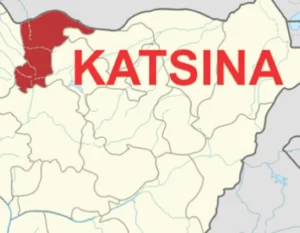
Christmas in the time of inflation
As Christmas fades into the rearview mirror and the decorations come down, many Nigerians are left to reflect on a holiday season unlike any other. This year, the Yuletide festivities were overshadowed by the harsh realities of inflation, which has made it difficult for families to celebrate in the traditional manner. The soaring prices of essential goods have taken a toll on the livelihoods of millions, making what was once a time of abundant feasts and family gatherings a challenging period of economic struggle.
Across the country, the festive season was marked by grim concerns over affordability. Traders in Lagos, Osogbo, Kaduna, and beyond have shared their dismay at the unprecedented price hikes in everything from poultry to essential cooking ingredients. In Lagos’ Ile-Epo Market, traders lamented the fact that a chicken, once priced at N15,000, now costs N35,000, and even basic items like vegetable oil and garri have more than doubled in price. The cost of a 6kg chicken in Osogbo has surged to N50,000, up from N25,000 last year, while a bag of rice in Kaduna has nearly doubled to N96,000. For many, the prospect of a grand Christmas meal was no longer a reality but a luxury that was simply out of reach.
What’s most striking, however, is how these price hikes are affecting the spirit of Christmas itself. For many Nigerians, this time of year is traditionally filled with shared meals, family reunions, and acts of generosity. But as the costs of basic goods continue to climb, the very foundation of these celebrations has been eroded. Families, once accustomed to a hearty Christmas feast, found themselves struggling to afford even the basics. As Chika, a mother of three, poignantly put it, “How do I explain to my children that we can’t even afford a decent meal during Christmas?” Her sentiments reflect the deepening despair felt by many as they face the stark reality of soaring prices and economic hardship.
As we reflect on this past Christmas, it’s evident that the rising cost of living is not just a financial burden but an emotional one as well. The government’s failure to effectively address the root causes of inflation has left many Nigerians feeling helpless and disillusioned. From rising fuel costs to the skyrocketing prices of imported goods, it seems as though every aspect of daily life has been affected. Traders have voiced their frustration, urging the government to consider the impact of fuel costs, taxes, and transportation expenses on the prices of everyday goods. As one trader in Osogbo said, “They should find a solution to this issue.”
And yet, despite these overwhelming challenges, the resilience of Nigerians shone through this Christmas. Many chose to adapt to the circumstances, opting for more affordable alternatives to traditional holiday fare, such as fish or beef instead of the usually coveted poultry. Some even celebrated with smaller, more intimate gatherings, finding joy in family, faith, and togetherness, rather than in material wealth.
However, the reality remains: the government must take urgent action to tackle the inflationary crisis that is crippling families. Price hikes in basic food items, fuel, and transportation are a constant reminder of the structural issues that need to be addressed. It is crucial that leaders take decisive steps to alleviate the burdens on everyday Nigerians, especially in a period that should be focused on generosity and goodwill. For many, this year’s Christmas was marked by financial strain rather than festive cheer.
Ultimately, Christmas is not just about the grandeur of meals or the abundance of gifts, but about unity, compassion, and love. These values remain at the heart of what Christmas is all about. But as the economic strain deepens, it’s clear that the season’s true spirit was tested this year, and the financial struggles of so many must not be ignored.
In the days following Christmas, as Nigerians return to their daily routines, it’s essential for both the government and citizens alike to reflect on how to support one another. The spirit of Christmas may have been strained by inflation, but it is in times of hardship that the values of kindness, empathy, and community must shine through. The season may be over, but the need for solidarity and collective action to address the ongoing economic crisis remains urgent. Let us hope that the lessons of this Christmas will inspire change for the better, bringing relief to those who need it most in the year to come.




